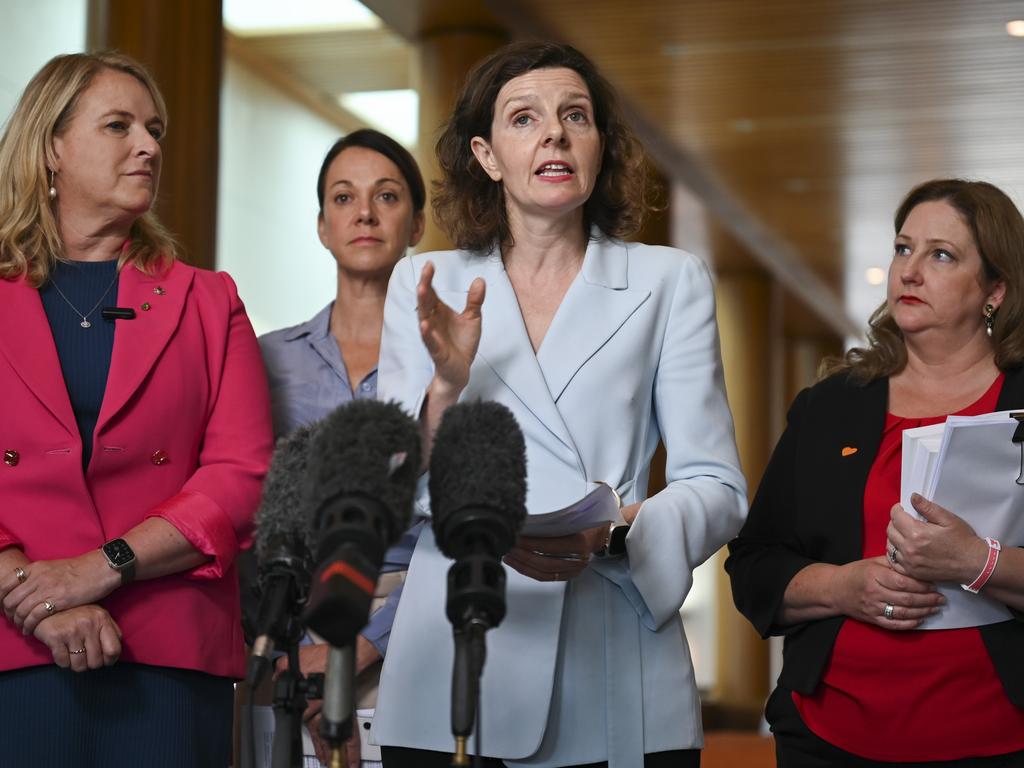BHP hits back: our taxes paid for half of all hospitals
Mining giant BHP has defended its role in the Australian economy, claiming the amount of tax it paid last financial year was equal to half the entire annual funding of the public hospital system.

Mining giant BHP has entered the political war between the resources sector and the Albanese government, defending its role in the Australian economy and claiming the amount of tax it paid last financial year was equal to half the entire annual funding of the public hospital system.
The rare intervention by BHP into a brawl between the Minerals Council of Australia and Anthony Albanese marks the company’s most significant public response since Labor’s Resources Minister Madeleine King launched a scathing attack on the company two weeks ago.
It also signals an intention from BHP to back the minerals sector’s industry body in the push back against the Prime Minister’s claims that the mining sector needed to de-escalate the conflict over Labor’s industrial relations reforms.
In a statement released on Tuesday night, BHP’s Australia president, Geraldine Slattery, said the company was a significant contributor to national GDP, injecting $50bn into the Australian economy last financial year with $14.5bn in payments to governments through taxes, royalties and other payments.
The company claimed that, over the past decade, it had paid more than $107bn in tax, royalties and other payments to Australian governments and contributed 6 per cent of the entire company tax take from the government.
“We are proud of our contribution to the Australian economy and the role we play in helping fund the essential services on which Australians rely,” Ms Slattery said.
“The $14.5bn in taxes, royalties and other payments we made to Australian governments last financial year is around half what the federal government spends annually to run public hospitals across Australia.”
Ms Slattery’s comments are seen as explicit support for MCA chief executive Tania Constable who on Monday night stared down Mr Albanese while accusing him of bringing conflict to every workplace in Australia through its industrial relations agenda.
Ms Slattery defended BHP’s record on workers’ rights, Indigenous engagement and the level of taxes and royalties it paid to the federal and state governments. She said the adjusted tax rate the company paid was 32 per cent and with royalties it was 44 per cent.
“The success of BHP is only made possible by the hard work of our people and the hard work of the thousands of businesses we partner with around Australia – we could not do what we do without them,” Ms Slattery said in her statement.
“We believe in making a difference in the communities where we live and work.
“We are on track to meet our goal of procuring $1.5bn of goods and services from Aboriginal and Torres Strait Islander and Traditional Owner businesses by the end of FY27.
“As well as continuing to invest in Indigenous businesses, we know it’s important to also invest in the skills and capabilities of current and future Indigenous business leaders and the ecosystem which enables them.”
The company claims its $52bn in economic contributions to the country included $22.2bn spent with suppliers and about $700m spent directly with 240 Indigenous suppliers. It was on track to meet a commitment to procure $1.5bn of goods and services from Indigenous and traditional owner businesses by the end of FY27.
It also paid $5.6bn in wages, incentives and benefits paid to employees, $10.5bn in dividends to Australian shareholders and $110m in social investment in communities. The company went on to claim that its projects contributed 9 per cent and 11 per cent of all government revenue in Queensland and Western Australia, respectively.
BHP chief financial officer Vandita Pant said: “In FY2024, our tax, royalty and other payments to governments totalled $US11.2bn. Of this, 85 per cent was paid in Australia. BHP was one of the largest corporate taxpayers in Australia in FY2024.
“During the last decade, we paid $US95.1bn globally in taxes, royalties and other payments to governments, including $US76.6bn (approximately $107.1bn) in Australia.”





To join the conversation, please log in. Don't have an account? Register
Join the conversation, you are commenting as Logout